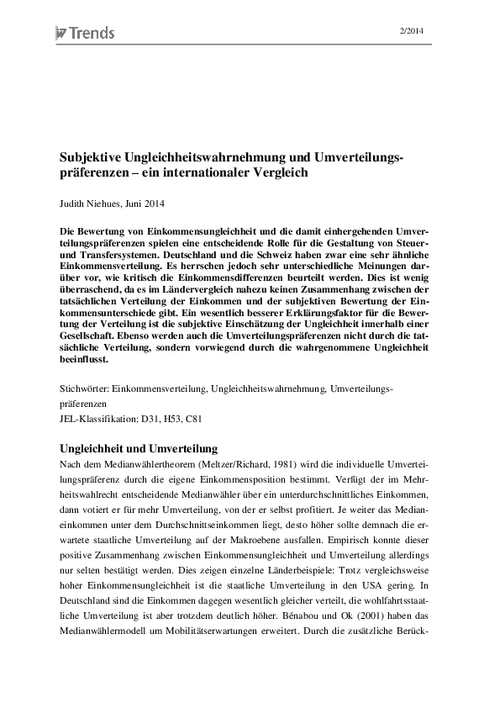An International Comparison

Subjective Perceptions of Inequality and Redistributive Preferences
IW-Trends

An International Comparison
Views on income inequality and concomitant redistributive preferences are crucial to the design of tax and transfer systems. Although income distribution in Germany, France and Switzerland is very similar, opinions differ widely as to how critically income differences are viewed. This is hardly surprising given that when countries are compared there is almost no connection between the actual distribution of incomes and subjective evaluations of income differentials. In fact, many nationalities assume that the structure of their society is considerably less equitable than it really is. Thus, a factor which far better explains views on distribution is the subjective perception of inequality within a society. Similarly, redistributive preferences are influenced less by actual distribution than by perceived inequality.

Judith Niehues: Subjektive Ungleichheitswahrnehmung und Umverteilungspräferenzen – ein internationaler Vergleich
IW-Trends

More on the topic

The Political Economy of Pension Reform
As the German population ages, the country’s statutory pension scheme, which is financed on a pay-as-you-go basis, requires higher and higher contributions while the level of pensions is falling.
IW
Challenges for the debt brake
In 2019, Bardt et al. (2019) initially presented a comprehensive estimate of the unmet public investment needs in Germany not covered in household planning at the time, totaling around €460 billion over ten years.
IW